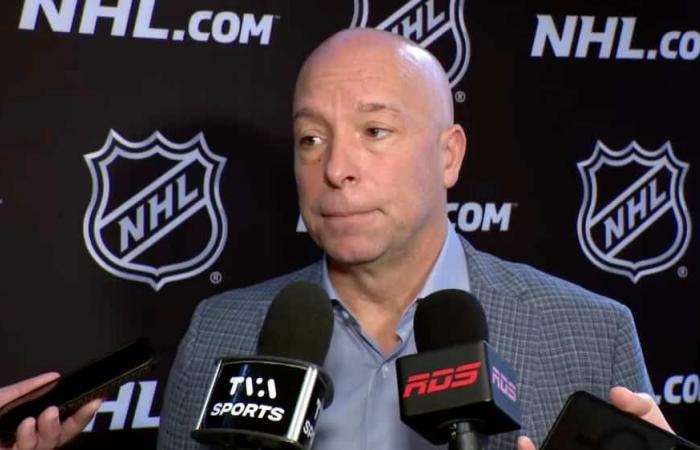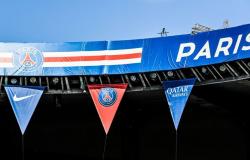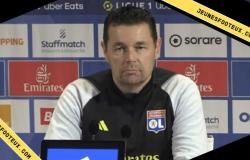Kent Hughes makes no secret of it: he would have liked his team to have had a better start to the season.
• Also read: This CH prospect is the NCAA’s top scorer
• Also read: Savard discouraged by what he saw in Toronto
The general manager of the Montreal Canadiens, however, believes that the first weeks of the campaign will have allowed the staff to obtain important information on the composition of the team which boasts a record of 5-9-2 after 16 games.
“Of course we would like to have had a better start than what we had. But with the good times and the bad times, we learn things about our players,” said Hughes upon leaving the meeting of the general managers of the National Hockey League (NHL) on Tuesday.
“At the stage we are currently at, the most we can learn about our players will help us for the future and the decisions we will have to make,” he added.
One thing Hughes and his group of managers were able to note was the team’s reaction following a long losing streak. Before winning 7-5 against the Buffalo Sabers on Monday, the Habs went through a lethargy of six games without knowing victory.
“Of course when you go through sequences like that, you want to see how the players react individually, but also as members of a team,” he argued.
However, can a young team like CH learn from defeat?
“In a way. The life of a professional athlete is not easy. I think I have often talked about ways to manage pressure individually and collectively,” said Hughes, who was a player agent before becoming CH general manager.
No solution Band-Aid
Despite the rough start to the season, don’t think Hughes will make a panic trade to improve the team. He has a well-defined plan and has no intention of deviating from it.
“Of course when you lose, you want to give everything to your team to improve their chances, but we have to be patient and stay on our plan. We will not do short-term things that will harm our long-term objectives,” he clarified.
The fact remains that even for him, it is sometimes difficult to resist making a personnel movement in reaction to defeat. However, he prefers to trust young players and let them gain the experience necessary to build a winning team.
“With a young team, you will sometimes see more mistakes. You may want to make a change to bring in someone with more experience and who makes fewer mistakes, but that will take away the time for this young player to gain experience so that one day, he won’t make more of these mistakes,” he analyzed.






